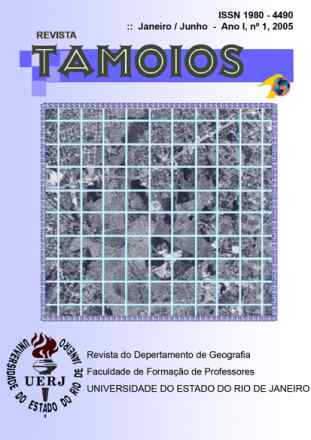MAGÉ-RJ E O ENSINO DE HISTÓRIA E CULTURA AFRO-BRASILEIRA, AFRICANA E INDÍGENA (EHCAI): UMA ANÁLISE DAS POLÍTICAS EDUCACIONAIS A PARTIR DA ÓTICA GEOGRÁFICA
Revista Tamoios
MAGÉ-RJ E O ENSINO DE HISTÓRIA E CULTURA AFRO-BRASILEIRA, AFRICANA E INDÍGENA (EHCAI): UMA ANÁLISE DAS POLÍTICAS EDUCACIONAIS A PARTIR DA ÓTICA GEOGRÁFICA
Autor Correspondente: B. M. Rocha | [email protected]
Palavras-chave: Lei n. 10.639/03; Geografias Negras; ensino de geografia; Currículo
Resumos Cadastrados
Resumo Português:
Nos últimos anos observou-se uma série de disputas curriculares, entre distintos agentes da sociedade, para definir prioridades sobre o que deveria ser ensinado na educação básica. Estas disputas resultaram em mudanças nos conteúdos a serem ministrados nas escolas municipais e estaduais. Diante deste contexto de transformação curricular e disputas, este artigo tem como objetivo analisar a criação e o currículo da disciplina de Ensino de História e Cultura Afro-brasileira, Africana e Indígena (EHCAI), na educação básica do ensino do Município de Magé, no Estado do Rio de Janeiro sob a ótica da Geografia. Para realizar esta análise foi adotado como campo metodológico a leitura de diferentes dispositivos legais que estruturam a criação da disciplina, entre eles a Lei n. 10.639/2003. O artigo foi dividido em três momentos analíticos: debate sobre currículo enquanto espaço de disputa e a Lei n. 10.639/2003; a experiência de Magé com a implementação das disciplinas diversificadas no Ensino Fundamental II; e o currículo do EHCAI, apresentando limitações e potencialidades à luz do campo geográfico. Como resultado percebeu-se que a disciplina dialoga, e até mesmo é análoga ao currículo da Geografia, contudo, apresenta limitações no campo de discussões que não recobrem seu objetivo.
Resumo Inglês:
In recent years, a series of curricular disputes has been observed, between different agents of society, to define priorities about what should be taught in basic education. These disputes resulted in changes in the content to be taught in municipal and state schools. Faced with this context of curricular transformation and disputes, this article aims to analyze the creation and curriculum of the subject Teaching History and Afro-Brazilian, African and Indigenous Culture (EHCAI), in basic education teaching in the Municipality of Magé, in the State of Rio de Janeiro from the perspective of Geography. To carry out this analysis, the reading of different legal devices that structure the creation of the discipline was adopted as a methodological field, among them Law n. 10,639/2003. The article was divided into three analytical moments: debate on curriculum as a dispute space and Law n. 10,639/2003; Magé's experience with the implementation of diversified disciplines in Elementary School II; and the EHCAI curriculum, presenting limitations and potentialities in light of the geographic field. As a result, it was noticed that the discipline dialogues, and is even analogous to the Geography curriculum, however, it presents limitations in the field of discussions that do not cover its objective.

